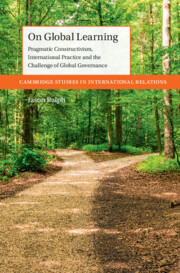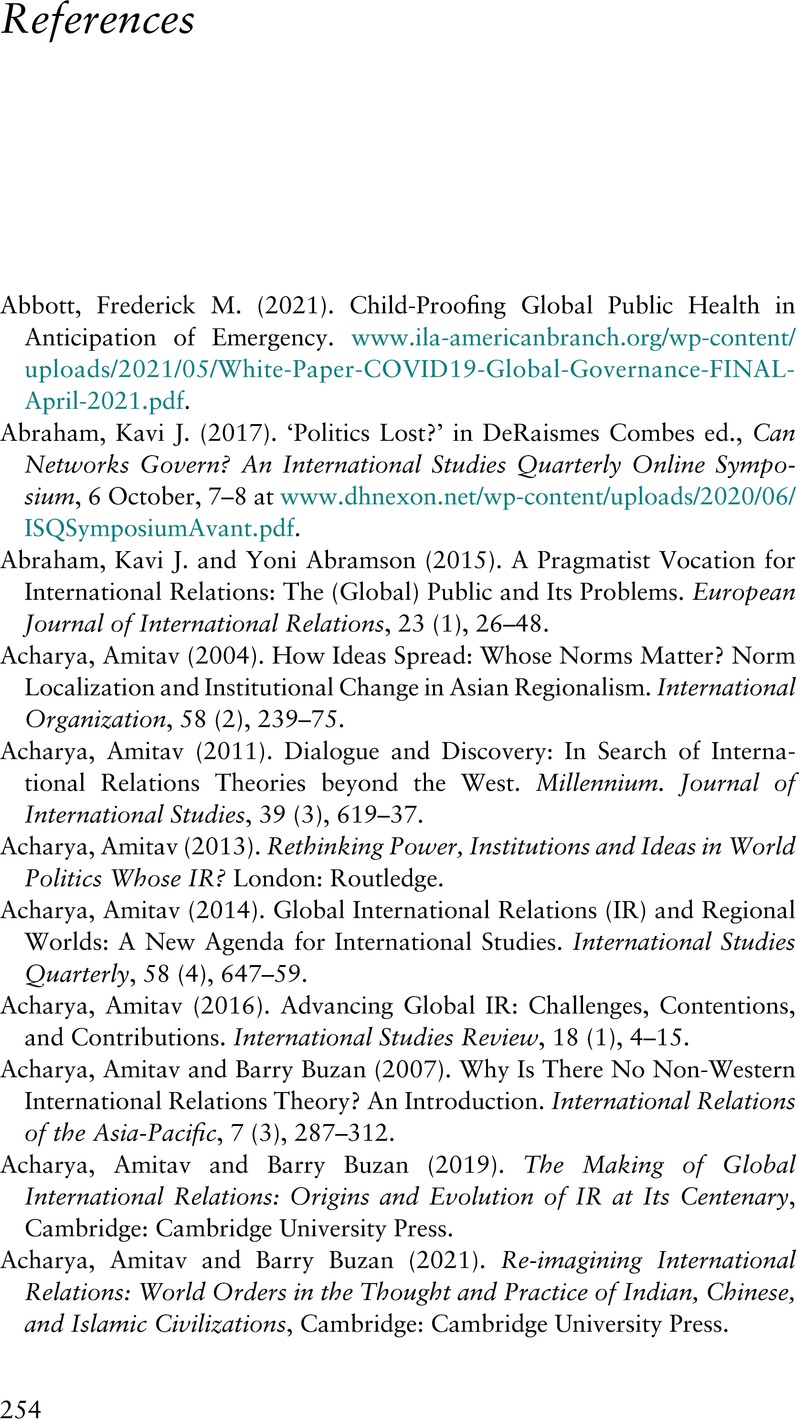 On Global Learning
On Global Learning References
Published online by Cambridge University Press: 07 September 2023
Summary

- Type
- Chapter
- Information
- On Global LearningPragmatic Constructivism, International Practice and the Challenge of Global Governance, pp. 254 - 295Publisher: Cambridge University PressPrint publication year: 2023


